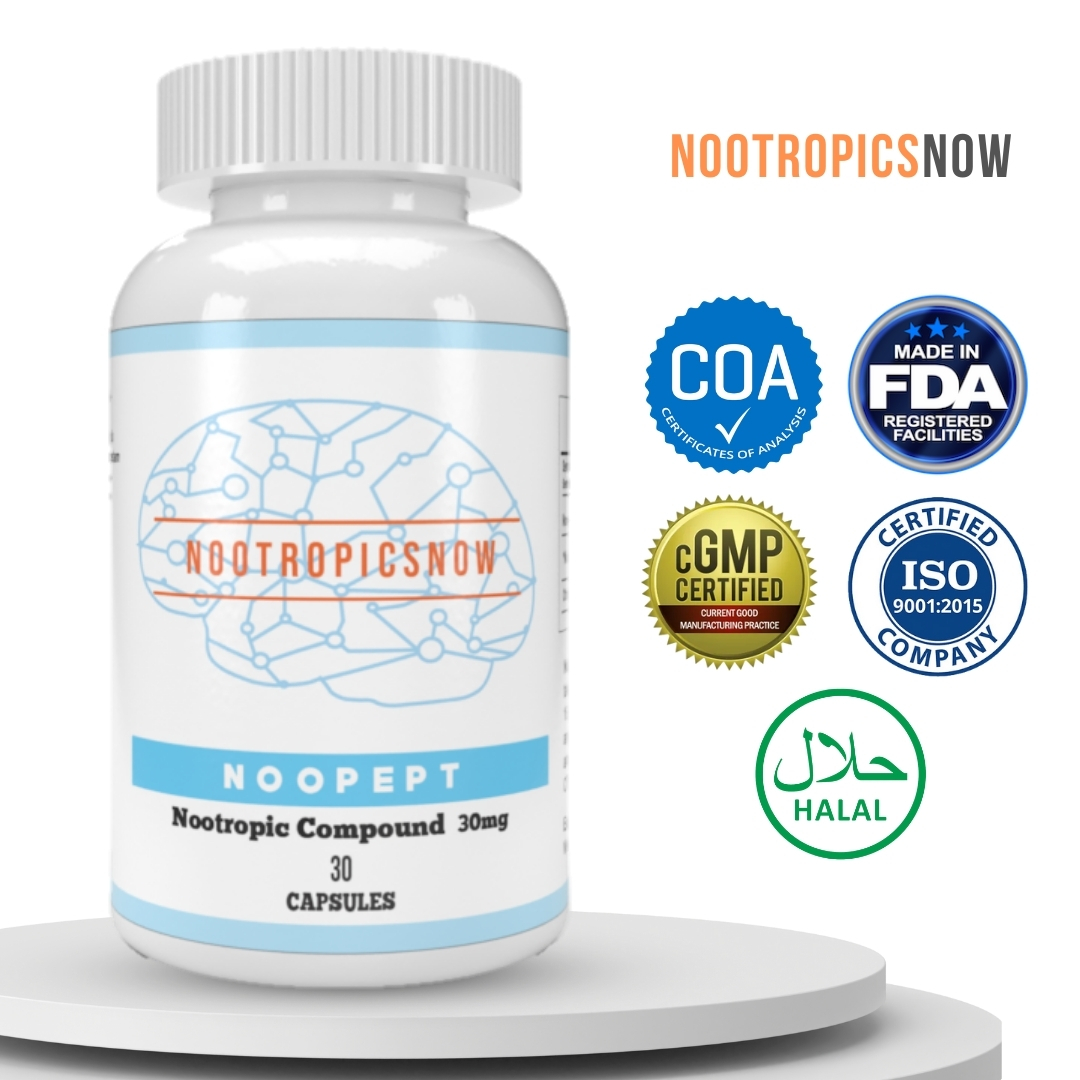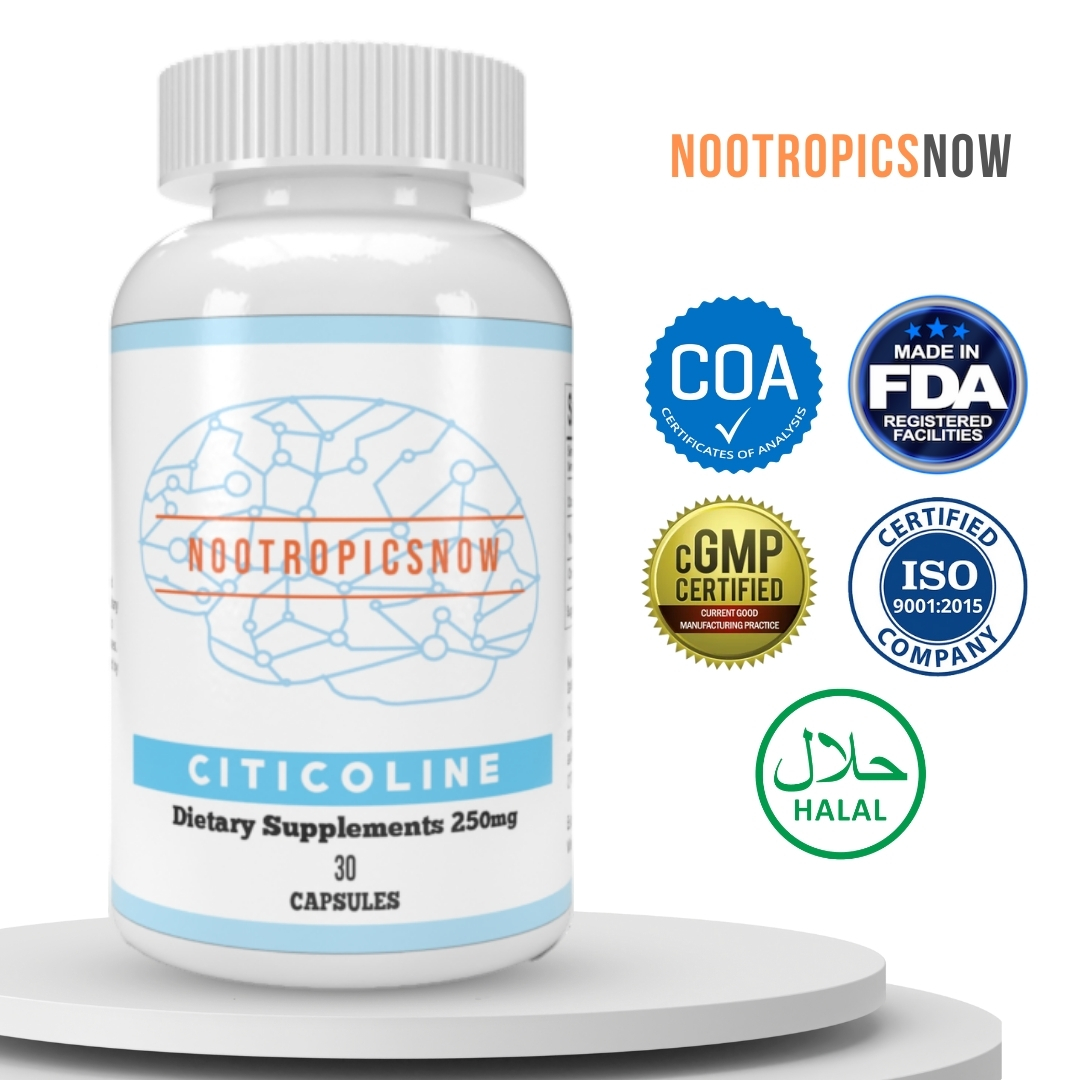Creativity Nootropics: Boost Your Brain

`markdown
Creativity Nootropics: Sparking Imagination and Innovation
Creativity, the engine of innovation and artistic expression, has always fascinated researchers and individuals alike. While innate talent plays a role, cognitive enhancement through nootropics offers a compelling avenue for boosting creative output. Creativity nootropics, therefore, refer to substances that may enhance various cognitive functions involved in creativity, like divergent thinking, idea generation, and cognitive flexibility. They may work by influencing neurotransmitter levels, boosting cerebral blood flow, or protecting brain cells from oxidative stress. However, it is important to note that current evidence suggests that creativity nootropics are not a magic bullet, and their effects are often subtle and can vary between individuals.
Understanding the Neuroscience of Creativity
To understand how nootropics might influence creativity, it’s essential to understand the underlying neurological processes. Creativity isn’t confined to a single brain region; it’s a complex interplay of networks:
Ideally, creativity nootropics help coordinate the activity between these networks for optimal creative performance.
How Nootropics May Enhance Creativity
While the precise mechanisms are still being studied, creativity nootropics may influence these key cognitive processes:
Key Nootropics for Boosting Creativity

A range of nootropics have been explored for their potential to enhance creativity. However, the evidence is varied, and individual responses can differ significantly.
1. L-Theanine
L-Theanine, an amino acid found in green tea, is known for its calming effects. It promotes alpha brainwave activity, associated with a relaxed but alert state, ideal for creative thinking. Combining L-Theanine with caffeine can create a synergistic effect, boosting focus and creativity without the jitters often associated with caffeine alone. L-Theanine reduces anxiety and promotes a state conducive to creative flow.

View Product
2. Bacopa Monnieri
Bacopa Monnieri, a traditional Ayurvedic herb, has been shown to improve memory and cognitive function. By enhancing memory recall and cognitive flexibility, Bacopa can provide a stronger foundation for creative ideation. Chronic use is often recommended to see the maximum benefits of this nootropic.

View Product
3. Rhodiola Rosea
Rhodiola Rosea, an adaptogenic herb, helps the body cope with stress. By reducing fatigue and enhancing mental resilience, Rhodiola can help overcome creative blocks and maintain productivity. Its stress-reducing properties also promote a more relaxed and open-minded state, conducive to creative thinking. It helps regulate mood.

View Product
4. Lion’s Mane Mushroom
Lion’s Mane Mushroom is a medicinal mushroom known for its neuroprotective properties. It stimulates Nerve Growth Factor (NGF) production, potentially promoting brain cell growth and improving cognitive function. Anecdotal evidence suggests it enhances creativity and mental clarity. Research suggests that its neuroprotective effects are helpful.

View Product
5. Acetyl-L-Carnitine (ALCAR)
Acetyl-L-Carnitine (ALCAR) is an amino acid that promotes energy production in brain cells. It may enhance cognitive function, improve mood, and reduce fatigue, potentially boosting creative output. ALCAR may enhance focus.
6. Noopept
Noopept is a synthetic nootropic known for its cognitive-enhancing properties. It may improve memory, learning, and focus, potentially leading to increased creative output. However, its effects can be highly individual, with some users experiencing significant benefits while others report minimal impact. Its mechanism of action may also improve mood and focus.

View Product
7. Phenylpiracetam
Phenylpiracetam is a synthetic nootropic in the racetam family. It is known for its stimulating effects and cognitive-enhancing properties, including improved focus, memory, and mental clarity. It may enhance creativity by increasing alertness and cognitive flexibility. However, tolerance can develop quickly, so it is recommended to cycle its use.
8. Creatine
Creatine is not just for bodybuilders! Creatine monohydrate supplementation improves cognition. Brain creatine levels correlate positively with intelligence quotient. Creatine uptake also occurs in the brain. As a cognitive enhancer, creatine monohydrate also improves vigilance performance. Furthermore, in contrast to many of the stimulants, it can improve cognition in sleep deprived individuals.
9. CDP-Choline (Citicoline)
CDP-Choline is a naturally occurring compound in the body that serves as a precursor to acetylcholine, a neurotransmitter critical for memory, learning, and cognitive function. By boosting acetylcholine levels, CDP-Choline supports overall brain health and may enhance cognitive flexibility, thereby aiding creative processes.

View Product
10. Tryptophan
Tryptophan is an essential amino acid that the body uses to produce serotonin, a neurotransmitter known for its mood-regulating effects. While not directly enhancing cognitive abilities like memory or focus, tryptophan can indirectly support creativity. This is because serotonin, derived from tryptophan, can help reduce stress and anxiety.
Considerations Before Using Creativity Nootropics
Before experimenting with creativity nootropics, consider these important points:
The Importance of a Holistic Approach to Creativity Enhancement
While creativity nootropics may offer a potential boost, they are most effective when combined with a holistic approach:
The Future of Creativity Nootropics
Research into creativity nootropics is ongoing, with potential for further advancements. Future research may focus on:
Ultimately, creativity nootropics offer a fascinating avenue for exploring the potential of the human brain. While they are not a magic bullet, they can be a valuable tool when used responsibly and in conjunction with a holistic approach to creativity enhancement. The journey of discovery is ongoing, and continued research will undoubtedly reveal even more about the complex interplay between cognition and creativity.
`
`markdown
Creativity Nootropics: Sparking Innovation and Enhancing Artistic Expression
Creativity, often regarded as a mystical force, is fundamentally a complex interplay of cognitive processes. These processes involve memory recall, pattern recognition, and divergent thinking. Nootropics, substances designed to enhance cognitive function, can potentially unlock new levels of creative potential. By optimizing brain function, these substances may foster an environment conducive to innovative thought and artistic expression.
Understanding the Cognitive Foundations of Creativity
Creative thinking isn’t a singular ability but rather a collection of interwoven cognitive skills. These skills encompass the ability to generate novel ideas, connect seemingly unrelated concepts, and overcome mental blocks. Moreover, these processes rely on several key brain functions:
Identifying Nootropics for Creative Enhancement
Several nootropics are touted for their potential to enhance different aspects of creativity. It’s important to note that research in this area is still evolving, and individual responses can vary. However, based on current evidence and anecdotal reports, some of the most promising creativity nootropics include:
Optimizing Nootropic Use for Creativity
To maximize the potential benefits of creativity nootropics, consider the following strategies:
Safety Considerations and Potential Side Effects
While nootropics are generally considered safe, it’s important to be aware of potential side effects. These can vary depending on the specific substance and individual sensitivity. Common side effects may include:
If you experience any persistent or severe side effects, discontinue use and consult with a healthcare professional.
Creativity Nootropics Stack Examples
Here are some example nootropic stacks specifically tailored for boosting creativity. These stacks are based on anecdotal evidence and should be approached with caution and individual experimentation:
1. The “Flow State” Stack:
Rationale: This stack aims to induce a state of relaxed focus, ideal for creative tasks. L-Theanine promotes relaxation, while caffeine provides a gentle energy boost. Lion’s Mane supports overall brain health.
2. The “Idea Generator” Stack:
Rationale: This stack focuses on boosting cognitive function and associative thinking. Alpha-GPC provides the building blocks for acetylcholine, while Phenylpiracetam enhances mental clarity and adaptability.
3. The “Stress Buster” Stack:
Rationale: This stack is designed to mitigate the negative effects of stress on creativity. Rhodiola Rosea helps the body manage stress, while Bacopa Monnieri reduces anxiety and improves memory.
Legal Considerations in the Philippines
The legality of nootropics can vary depending on the specific substance and the country. In the Philippines, some nootropics are available over-the-counter as dietary supplements, while others may require a prescription. It’s important to research the legal status of any nootropic before purchasing or using it.
Generally, nootropics sold as food supplements are legal as long as they are registered with the Food and Drug Administration (FDA). Substances categorized as medicines generally require a prescription from a licensed physician.
The Future of Creativity Nootropics
The field of creativity nootropics is rapidly evolving. As research progresses, we can expect to see a better understanding of how different substances affect creative thinking and the development of more targeted and effective interventions. Furthermore, personalized nootropic regimens, tailored to individual cognitive profiles and creative goals, may become increasingly common.
Conclusion: Unleashing Creative Potential Through Nootropics
Creativity is a valuable asset in many aspects of life, from art and science to business and problem-solving. While nootropics are not a magic bullet for creativity, they can potentially enhance the cognitive functions that underlie creative thinking. By carefully selecting and using nootropics in conjunction with a healthy lifestyle, individuals can unlock new levels of creative potential and express themselves more fully. However, it is crucial to remember that individual responses to nootropics can vary, and consulting with a healthcare professional is always recommended before starting any new supplement regimen.
`


